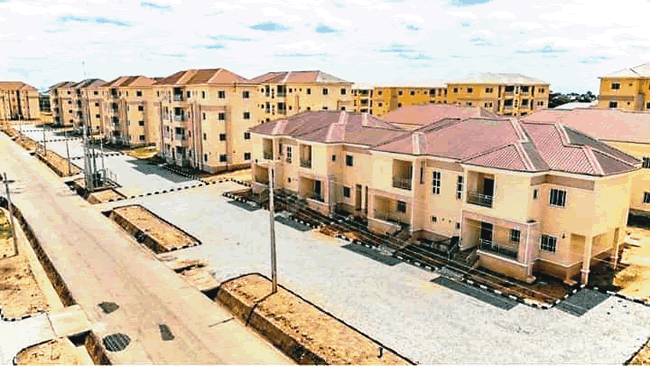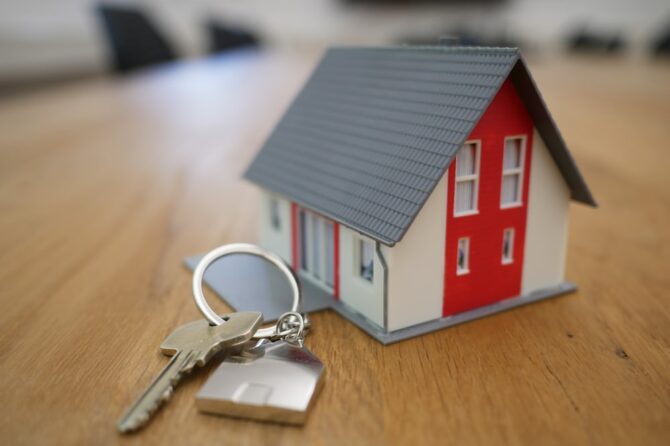Nigeria is predicted to have a 17 million-unit housing shortfall. According to Business Day data, Nigeria has one of the lowest home ownership rates in Africa, with roughly 25% of the population owning a home, whereas Kenya has 75% and South Africa has 70%. The importance of Foreign Direct Investment in the Nigerian real estate sector cannot be overstated. Nigeria is suffering from a severe housing shortage, with millions of its residents without access to affordable, high-quality homes. Demand for residential, commercial, and industrial properties is being driven by urbanization, population expansion, and changing demographics. As the government continues to attract foreign investors, it is critical to investigate the prospects and problems of FDI in Nigeria’s real estate market.
This article aims to shed light on the ways in which FDI can serve as a catalyst for transformation in the Nigerian real estate market. The sector not only offers opportunities for profit but also presents the chance to contribute to the nation’s sustainable economic growth, job creation, and infrastructure development. However, navigating the complex regulatory, political, and cultural landscape in Nigeria can be a daunting challenge for foreign investors.
Attracting Foreign Investment: Opportunities Abound
The real estate sector in Nigeria is teeming with potential, serving as an essential pillar of the nation’s economy. It encompasses residential, commercial, and industrial properties, making it a fertile ground for investment. As Nigeria’s population continues to surge, the demand for housing grows proportionately, and this presents a unique opportunity for foreign investors. So, what makes Nigeria’s real estate sector so enticing for foreign investors? There are several factors at play:
- High Demand for Housing: Nigeria is grappling with a significant housing deficit. The country has a population of over 200 million people, and it is estimated that the housing deficit is in the millions. This presents a massive market for foreign investors interested in residential real estate development.
- Economic Growth: The Nigerian economy is one of the largest in Africa, and it continues to grow. This growth is attributed to factors such as a youthful and growing population, abundant natural resources, and government efforts to improve the business environment. These economic factors make Nigeria an attractive destination for FDI.
- Stable Legal Framework: Nigeria has been actively working to create a more investor-friendly environment. The Nigerian government has taken steps to simplify property acquisition and registration processes, offering legal protection for foreign investors.
- Infrastructure Development: Infrastructure, such as roads, water supply, and electricity, is a crucial aspect of real estate development. The Nigerian government is actively investing in infrastructure to support the real estate sector, and foreign investors can participate in these projects.
Foreign Direct Investment (FDI) in Nigeria’s real estate sector,
In our exploration of Foreign Direct Investment (FDI) in Nigeria’s real estate sector, we delve into specific case studies that showcase how FDI has transformed the housing market and boosted homeownership. These real-world examples demonstrate the opportunities, challenges, and lessons learned, shedding light on the potential for FDI to drive change in the sector.

- Eko Atlantic City: Eko Atlantic City, often referred to as the “Dubai of Africa,” is a shining example of FDI’s impact on Nigeria’s real estate sector. This mega-project, located in Lagos, is a city within a city, built on reclaimed land and developed by South Energyx Nigeria Limited. It’s set to become home to over 250,000 people and will feature state-of-the-art residential and commercial properties. Housing Units: Eko Atlantic City offers a wide range of housing options, including luxury apartments, high-rise condos, and waterfront villas. With a planned total of 400,000 housing units, this development is expected to significantly reduce the housing deficit in Lagos. https://www.ekoatlantic.com/
- Abuja Centenary City: Abuja Centenary City is another FDI-driven project that aims to redefine Nigeria’s housing landscape. This ambitious venture, backed by UAE investors and the Nigerian government, will span 1,267 hectares in the heart of the nation’s capital. Housing Units: The Centenary City is designed to provide world-class housing with a mix of residential units, from affordable apartments to luxury homes. The project envisions 30,000 housing units upon completion.
- Azuri Peninsula, Ibeju-Lekki: Situated in the rapidly developing Ibeju-Lekki region of Lagos, Azuri Peninsula is a massive waterfront estate developed by South Energyx Nigeria Limited, the same company behind Eko Atlantic City. Housing Units: This project offers a diverse range of housing options, including residential villas, townhouses, and apartments. Upon completion, Azuri Peninsula is set to provide over 20,000 housing units.
- Banana Island: Banana Island, located in Lagos, is an upscale residential area developed by the Lebanese-owned company, Hi-Tech. This luxury enclave is one of the most sought-after residential areas in Nigeria. Housing Units: While Banana Island offers a limited number of housing units compared to larger developments, its exclusivity and luxury appeal have set a precedent for upscale living in Nigeria.
Conclusion
Foreign direct investment in Nigeria’s real estate sector holds great promise for addressing the housing deficit and increasing homeownership. As more foreign investors enter the market, they bring opportunities for affordable, high-quality housing, along with the potential for socioeconomic development. However, to ensure the long-term success of these investments, both the government and private sector stakeholders must work together to create a conducive environment for FDI and maintain economic stability.
As FDI continues to play a growing role in the Nigerian real estate sector, the dream of homeownership may become more achievable for countless citizens, contributing to a brighter and more prosperous future for the nation. https://buyfromnigeria.com/boosting-home-ownership-in-nigeria-the-impact-of-foreign-direct-investment/












